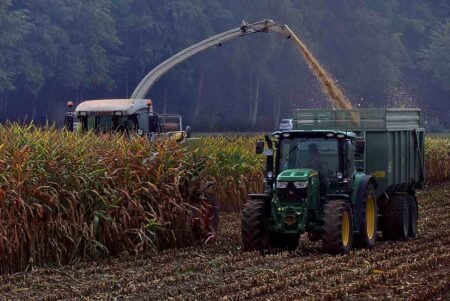The European Commission adopted on 24 August a package of proposals that aims to increase trade between the European Union and neighbouring countries in the Pan-Euro-Mediterranean (PEM) region, thereby contributing to the economic recovery following the coronavirus outbreak.
Advertisement
What are rules of origin, and why do they matter?
‘Rules of origin’ are necessary under any trade agreement because they determine which goods can benefit from preferential treatment. The ‘origin’ is the ‘economic nationality’ of the goods traded. Origin procedures ensure that customs authorities can verify the origin of a good and allow businesses to prove the origin of their goods. When all the necessary requirements are met, goods with preferential origin are eligible to be imported with lower duty rates, or even a zero rate, depending on the preferential tariff treatment. Rules of origin prescribe the requirements that products need to meet to benefit from preferential treatment, such as minimum local processing, contents or value added.
What is the objective of the new rules? What will the main benefits be, as compared to the current situation?
The objective of today’s new rules is to modernise and update the rules of origin contained in the EU’s preferential trade agreements with countries in the Pan-Euro-Mediterranean (PEM) region, by making them more flexible and user-friendly. The aim of this is to promote economic integration and facilitate trade in the area.
Some of the benefits of the revised rules of origin:
- One of the main new elements of today’s package is that the operations or ‘value-added’ necessary for a good to be entitled to preferential origin can be split between several countries applying the revised rules for most of the products. This is called “full cumulation,” and facilitates the integration of supply chains within the PEM zone.
- The rules applicable to specific products will also be made more flexible and easier to meet: the thresholds for the use of non-originating materials or components will be increased, and, for most products, the current prohibition of duty-drawback will be lifted. Therefore, duties paid on imported components incorporated in exported products can be reimbursed. This will promote the competitiveness of EU exporters.
- Other improvements will be in the area of logistics, where the current “direct transport” rule, which makes it very difficult for goods transiting a foreign country to maintain their preferential origin, will be replaced with a more flexible “non-manipulation” rule. In the area of customs procedures, issuing the proof of origin will be facilitated, as it can be established that the exporters’ statements of origin, or the electronic issuance and presentation of origin proofs are accepted.
What happens to the Regional Convention on pan-Euro-Mediterranean preferential rules of origin (PEM Convention)?
The pan-Euro-Mediterranean Convention on rules of origin aims at establishing common rules of origin among the EU and the 24 countries in the PEM zone (EFTA, Turkey, Western Balkans, Eastern Partnership countries and Mediterranean countries).
The PEM Convention will remain in full application among all PEM Contracting Parties, as is currently the case. However, business and industry will have the option to apply the new rules for the goods they trade rather than the current PEM ones, whenever this suits them. Their use is therefore an additional possibility, and not an obligation.
These rules will therefore apply as rules alternative to those of the PEM Convention pending the finalisation of the review process of the PEM Convention which has been going on since 2012.
Economic operators will be informed of the possibility to use these new rules of origin by the Commission and by competent national authorities.
When will the new rules be effective? What are the necessary steps to put them into application?
It is now for the Council to adopt today’s proposals. This will enable the EU to agree with each of these trading partners on the introduction of the new rules in the origin protocols of the relevant agreements. The new rules could come into force in some countries as early as the first half of 2021.
Why was the review of the PEM Convention not adopted and what are the outstanding issues?
The EU attaches importance to the PEM Convention as it provides for a single set of origin rules currently applicable across the whole EU neighbourhood region. At the same time, as the origin rules of the PEM Convention were adopted in the 1990s, it was necessary to introduce the new rules within a reasonable time period. Waiting for the completion of the PEM Convention review process, whose timing was uncertain, would have meant that the EU and its neighbouring trading partners would benefit from fewer flexible and modern rules as compared with those negotiated by the EU in the more recent free trade agreements, such as those with Korea, Canada or Japan.
The revised rules proposed by the Commission are based on the outcome of the negotiations to review the PEM Convention that were effectively finalised in November 2019 with the presentation of a final compromise package. However, some PEM Contracting Parties could not support this package pending the negotiation of some bilateral derogations. The reservations expressed concerned some specific aspects of the rules (in particular textiles, some agricultural products and non-ferrous metals). The PEM Secretariat and the Commission will continue having bilateral discussions with all those Contracting Parties to examine possible ways to address outstanding issues/derogations given that the main objective is to complete the revision process so that the revised origin rules of the Convention can be endorsed by all Parties.
The Commission expects that the review process of the Convention can be completed quickly, so the revised PEM Convention can then apply as a single set of origin rules across the region.
Source: European Commission







